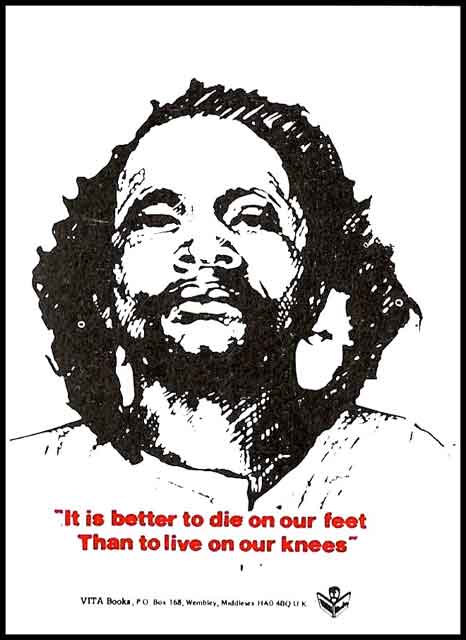
We live in disconcerting times. The wealth of USA’s 643 billionaires has soared by 29% since the start of the Covid-19 pandemic. On 13 August, 2020, the top twelve US billionaires had surpassed a combined wealth of $1 trillion. This year, the world’s 500 richest people have grown their fortunes by $871 billion, a 15% increase. All this while, the misery of the oppressed people has been increasing. Due to the Coronavirus-caused intensification of income inequalities, an additional 132 million people will go hungry than previously predicted this year. Moreover, by the end of 2020 12,000 people per day could die from hunger linked to COVID-19, potentially more than will die from the disease itself. Brutally indifferent to the hunger of the oppressed masses, the transnational capitalist class has instead opted to maximize its profit. Between January and July 2020, eight of the biggest food and drink companies paid out $18 billion to shareholders – ten times more than has been requested in the UN COVID-19 appeal to stop people going hungry. While looking at the present-day conjuncture, one can’t help but remember Karl Marx’s incisive description of capitalism: “Accumulation of wealth at one pole is at the same time accumulation of misery, agony of toil, slavery, ignorance, brutality, mental degradation, at the opposite pole.”
The progressive deterioration of socio-economic conditions has created a situation which is objectively revolutionary. By forcing the subalterns into a state of semi-starvation and perpetual precarity, the ruling class is producing a chain of circumstances whose ultimate result will be the aggravation of capitalism’s protracted crisis. In order to understand the objective damage done to capitalism through the hyper-exploitation of the lower classes, the phenomenon of income squeeze can be briefly studied. Reduction of the working class’s income leads to a crisis of over-production since the purchasing power of the workers is not able to keep up with the pace of production. Consequently, the lack of money on the part of the working class results in a decrease in aggregate demand since the ratio of consumption to income is higher for wage earners than for those living off the surplus. Demand-reducing effects arising from the consumption side reduce output, capacity utilization and lower investment over time, further exacerbating the initial crisis of neoliberal capitalism.
NEED FOR A NEW NARRATIVE
Objective conditions in-themselves, however, don’t possess the capacity to bring about a revolution. To take an example, capitalism has temporarily and unsustainably fixed the crisis of overproduction-under-consumption through credit expansion and debt-financed spending. The fact that capitalism has continued to patch up its contradictions – in however an instable way – proves that objective conditions are inadequate for replacing capitalism. Therefore, objective conditions need the presence of another major element to produce the prerequisites of a revolution.
Proper objective conditions need to cohesively combine with subjective conditions to bring forth a revolution. Subjective conditions refer to the attainment of class consciousness by the proletariat and the consequent construction of hegemony. Class consciousness and the construction of hegemony together constitute the subjective dimension of a revolution through which bourgeoisie ideological apparatuses are subverted. Presently, the Left is primarily waging a battle on the subjective plane in order to build counter-hegemonic bases of resistance and refine the embryonic consciousness of the oppressed masses. While doing this task, it has encountered the hegemonic force of right-wing populism which is culturally re-defining the status of the subalterns and utilizing emotively expressive symbolic methods to over-power the ideological efforts of the Left. In order to institute the hegemony of socialist forces in the civil society, new cultural strategies need to be devised which can combat the influence of the ascendant Right.
Right-wing populism denotes a politico-cultural force capable of emotionally expressing the discontent of the subaltern classes with neoliberal globalization and simultaneously consolidating the power of capitalism. To do this, the Right uses a variety of tactics. It initiates a personalized politics of muscular leaders; divides society into ethnically polarized groups; and uses extra-institutional street violence and mobilizations to infuse politics with raw emotions. All these political methods share a common feature: they aim at aestheticizing politics. In his seminal essay “The Work Of Art in the Age of Mechanical Reproduction”, Walter Benjamin, a German Marxist, had lucidly explained the relation between aesthetics and politics while talking about fascism: “Fascism attempts to organize the newly created proletarian masses without affecting the property structure which the masses strive to eliminate. Fascism sees its salvation in giving these masses not their right, but instead a chance to express themselves. The masses have a right to change property relations; Fascism seeks to give them an expression while preserving property.”
Right-wing populism’s emotionally energetic and politically persuasive practices are able to symbolically soothe the psychological wounds of neoliberalism. The Right’s visceral strategies stand in contrast to the emotionally dry politics of the Left. In its singular pursuit of emphasizing the economic defects of capitalism, socialist politics has renounced the effective use of varying emotions. While pointing out the contradictions of capitalism and focusing on economic issues, socialists tend to forget that the human being is incomplete, unfulfilled and laden with unrealized potentials which are the motor of human activity. Since humans are unfinished, they take recourse to repositories of subjective support comprising of emotions and ethics.
Bertolt Brecht, a communist and one of the most influential playwrights of the 20th century, had famously said: “Food comes first and then morality”. Today’s Left has misinterpreted and dogmatically followed this dictum and forgotten the dialectical unity in which food and morality co-exist. A lack of dialectical thinking on this issue has led leftists to believe that a person can exist without the presence of vivid emotions. Refuting this point, Ernst Bloch, a famous Marxist philosopher, had stated: “Human beings do not live by bread alone, particularly when they have none.” By not unifying the scientific critique of capitalism with the power of emotions, the Left has allowed the subalterns to be swindled by the expressive politics of right-wing populism which symbolically re-activates unfulfilled pasts and unrealized futures.
To counter-act the hegemony of right-wing populism, a new narrative of hope needs to be built which can soak the critique of capitalism in emotions, affections and feelings. Bloch had theorized this synthesis of critique and emotions in his magnum opus “Principle of Hope” where he made a distinction between two dominant strains of Marxism: cold stream and warm stream. The cold stream is concerned with the scientific critique of capitalism and the unmasking of mystifying ideologies. The warm-stream is concerned with a utopian revolutionary imagination which utilizes the power of emotions to produce a commitment to emancipation.
Both cold stream and warm stream should operate in a dialectical unity and the ruthless critique of capitalism should always be warmed up in the fire of emotions and affects, a fire that turns “reasons to act into imperatives to act.” As soon as both the streams are unified, a new knowledge structure is produced wherein reason speaks through the heart and guides the latter. The dialectical unification of heart and reason can be completed through the introduction of hope and utopia which produce a captivating vision of a desirable alternative, rooted in anger at the injustices of the world in which we live and infused with confidence about human possibilities.
HOPE AND UTOPIA
Utopia is omnipresent in capitalism. It is concentrated in works of mass culture and the bourgeoisie political system which many Marxists tend to flatly dismiss as concerned with “false consciousness” and thus, “manipulative”. Instead of such a uni-dimensional critique, a nuanced analysis of politico-cultural artifacts reveals that they are explicitly utopian. Fairy tales, films, theater and jokes not only mystify the consciousness of an individual but also express in abstract and idealist fashion the potentialities for a better future. On the political level, the bourgeoisie concept of citizenship not only blocks the emergence of class identities but also functions as a vision of a classless society where everyone would be politically and economically equal. A nuanced ideology critique, therefore, “is not merely unmasking…but is also uncovering and discovery: revelations of unrealized dreams, lost possibilities, abortive hopes – that can be resurrected and enlivened and realized in our current situation.”
The omnipresence of utopias in capitalism means that the oppressed classes have been silently struggling for a better world. Socio-cultural and political utopias are imperfect yearnings for what is more fully developed in Marxism and socialism. Leftists have to work with this contradictory subaltern consciousness which contains within itself the seeds of communism. By refining the nascent consciousness of the subalterns, leftist activists can form the utopia of communism. This form of constructing hegemony works with the pre-existing thought-systems to sharpen its edges and subvert it from within. A letter from Marx to Arnold Ruge dated 1843 explicitly supports this method of constructing hegemony: “Our motto must therefore be: reform of consciousness not through dogmas, but through the analysis of mystical consciousness which is still unclear to itself. It will then become apparent that the world has long possessed the dream of a matter, of which it must only possess the consciousness in order to possess it in reality. It will become apparent that it is not a question of a great thought dash between past and future, but of the carrying-through of the thoughts of the past.”
The formation of a communist utopia is inevitably accompanied by the institution of hope as an important axis of struggle. A communist utopia anticipates a new future and rejects the existing state of affairs. Correspondingly, to maintain a conviction in the new future and keep on struggling against the status quo, hope needs to be firmly established as the fluid which constantly flows throughout the matrix of the communist utopia. Hope in a communist utopia is not synonymous with naïve optimism. If that was case, hope would merely become another form of voluntarism. In contrast to voluntarism, hope in a communist utopia is intertwined with the knowledge of material conditions and reaches out for a new global future while taking full account of all the pressures towards a civilizational collapse. Consequently, hope denotes a terrain of constant striving where the communist activists are familiar with the indeterminacy of their class struggle which has not yet been defeated but likewise has not yet won. In spite of this indeterminacy, communist militants continue to maintain a commitment to emancipation and derive hope from the immense power they posses. Their power emanates from a fundamental flaw at the heart of any system of domination: the dependence of the dominator on the dominated. Recognizing this fact, subaltern classes believe that they have the capability to challenge capitalism and steer historical processes in the direction of communism.
When communist utopia and hope are used as the cultural tools of a revolution, a resilient environment of social sensitivity and emotional energy is produced. In this environment, the rhythms of revolution are composed of a critique of capitalism and a forward-looking, hope-infused conceptualization of a communist society. By highlighting the obscenity of capital accumulation through a scientific critique of the existing system, rage, fury and indignation are generated among the masses. John Holloway, a Marxist sociologist, powerfully expresses the sentiment of “refusal” which is created as a result of fury and indignation: “We are the fury of a new world pushing through the foul obscenity of the old. Our fury is the fury of refusal, of stifled creation, of indignation. Who are these people, the politicians and bankers who think they can treat us like objects, who think they can destroy the world and smile as they do it? They are no more than the servants of money, the vile and vicious defenders of a dying system. How dare they try to take our lives away from us, how dare they treat us like that? We refuse.”
The loud refusal of capitalism is accompanied by the soft glow of revolutionary hope which moulds the anger of the masses into a communist utopia. With the help of this communist utopia, subaltern classes are suffused with the echoes of emancipation and act on the basis of what Marx had designated as “the categorical imperative to overthrow all conditions in which man is a debased, enslaved, neglected and contemptible being.” The act of overthrowing capitalism, therefore, becomes ethically grounded and rooted in the everyday emotions of subaltern people.
In the contemporary period, a re-invigorated leftist strategy – combining emotions and scientific critique – is indispensably needed as the Right intensifies its cultural techniques and effectively aestheticizes politics to satisfy the demands of the oppressed classes. Today, more than ever, we need the presence of revolutionary hope and a well-built communist utopia capable of emotionally articulating the repressed desires and existential needs of the masses. A poem by Vladimir Mayakovsky, the poet of the Russian Revolution, beautifully expresses the revolutionary imagination which is needed to revitalize the global Left:
“We will smash the old world
wildly
we will thunder
a new myth over the world.
We will trample the fence
of time beneath our feet.
We will make a musical scale
of the rainbow.
Roses and dreams
Debased by poets
will unfold
in a new light
for the delight of our eyes
the eyes of big children.
We will invent new roses
roses of capitals with petals of squares”
Yanis Iqbal is an independent writer
Originally published in Hamptonthink.org
SIGN UP FOR COUNTERCURRENTS DAILY NEWSLETTER















































